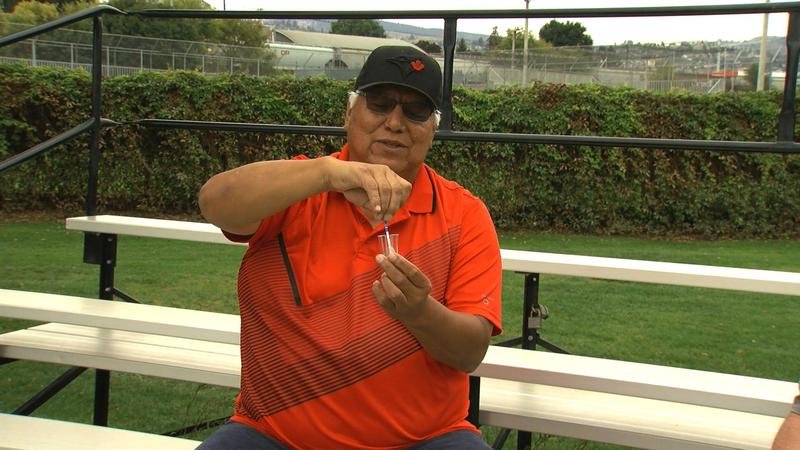
Lillooet man does his part to limit illicit drug overdoses in small communities
KAMLOOPS — Overdose deaths in the first eight months of 2020 have now surpassed the total deaths for all of 2019. One of the major issues drug users in the province face is an increasingly toxic supply of drugs, a problem made worse by the COVID-19 pandemic.
A mental health and addictions worker with the Ts’kw’aylaxw First Nation is trying to help reduce those deaths, through a simple solution: a cheap test kit, that allows drug users to see if there is fentanyl in their drugs before they use them.
It’s a simple and inexpensive solution to a problem devastating communities across our province. Rick Aleck has put together the drug testing kits for $1.25. The test strips are meant to detect fentanyl when it’s been mixed with other drugs.


